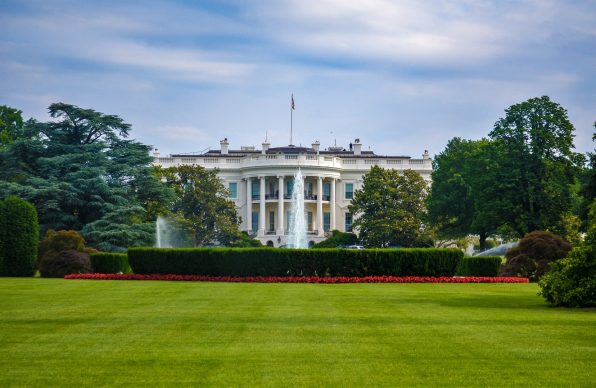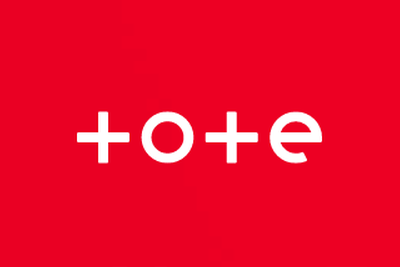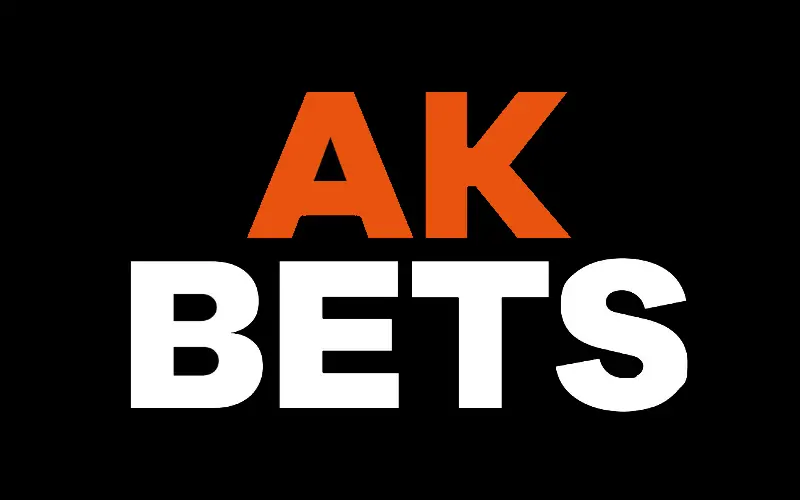How do US Presidential Elections work?
The Democrats and Republicans are the two key factions in US politics. While, constitutionally at least, the United States is not married to a two-party system, it is effectively the case. Independent politicians—as well as those with party allegiances—can run for President, such as Senator Bernie Sanders, but such an independent would declare for one of the two major parties during their election campaign in order to stand a chance of winning.
Elections are therefore fought between the Republican and Democrat nominees, and they’re selected through party-centric primaries and caucuses so that, from the outset, democratic process is in action. Those nominees, usually formalised by the end of the summer preceding an election, will then name their prospective Vice President.
So, for the 2020 US Presidential election, the running candidates are:
- Republican: President Donald Trump, and Vice President Mike Pence
- Democrat: Former Vice President Joe Biden, and Senator Kamala Harris
The US Presidential Election always occurs on the first Tuesday after the first Monday of November, with that being the 3rd November in 2020. When voters convene at ballot boxes around the country on that date, their votes for either the Republican or Democrat parties will determine the voting intention of members of the Electoral College. These electors, numbering 538 and representing either the Republicans or Democrats depending on how their states voted, then select the President. A candidate needs 270 votes from the Electoral College to win the election.
The Senate and the House of Representatives
Congress is the legislature of the federal government through which laws are drafted, debated, and voted upon. It’s composed of the Senate and House of Representatives, which sit for six and two years respectively, and elections for both houses run alongside the US Presidential Election. Because Senators sit for six years and Presidential elections occur every four years, only around a third of the positions are up for election at a time. Whichever party holds the most seats in either Congressional house wields considerable power in Washington, with the non-Presidential party being capable of hindering the legislative process for the sitting President if they control either or both of the houses. The reason for this is that legislation can only be passed if both houses of Congress are in agreement.
For example, following President Barack Obama’s victory in 2008, the Democrats controlled both the House of Representatives and the Senate. However, in 2010 the Republicans regained control of the Senate. What followed was a lengthy battle between the sitting President and his opposition in the Senate over government spending, considerably hampering the Obama administration’s economic and political strategies.
What Can I Bet On?
The Winner/Winning Party
The most straightforward way to bet on the US Presidential Election is to stick a wager on who you think will emerge as the next President of the United States. Alternatively, a more general wager can often be placed on which party will take charge of the White House. You can follow the latest developments and see how the odds for the next US President have changed over the course of the year with our historical odds tracker.
Democratic/Republican nominee
Betting on the nominees from each party stands to be one of the earliest Presidential Election wagers you can settle, with both candidates traditionally being finalised by the end of the summer preceding the election.
Electoral College Voting
Once the public has cast their ballots, the results determine how Electors within the Electoral College will vote again, on the public’s behalf, for their party of choice. 538 Electors vote in the Electoral College, with a candidate requiring 270 votes to win the election. The number of Electors representing each state is based on the total number of Congress members assigned to that state, with every state getting two Senators while their number of Representatives is based on population size. As such, states with larger populations hold greater sway over how things play out in the Electoral College by virtue of having more assigned Electors.
Bear in mind that Electors may vote against their allegiance, with the 2016 election seeing five so-called ‘faithless electors’ defect from Clinton and two defect from Trump.
Popular Vote Winner
While US politics operates in a different fashion to UK politics, a commonality is that the candidate with the most votes nationwide—the Popular Vote—won’t necessarily win the election. In 2016, Hillary Clinton secured 2.87 million more votes across the US than Donald Trump, but the Electoral College’s composition didn’t reflect this. Voting on who you think the most popular candidate is, rather than who will win outright, is a way to cut through the complexity of American politics whilst casting your wager.
Over/Under/Range
Many operators offer over/under and range-based results on a number of political bets, such as how many states a party will win, how many votes a party will receive in the Electoral College, the vote percentage each party accrues at the ballot box, and much more.
Nominee-Specific Bets
Many operators offer specific bets on the actions, successes, and failings of the Presidential nominees in the run-up to the election. As Donald Trump is the sitting President, many operators already have extensive odds on all manner of outcomes, from retaining the Presidency to naming US Navy ships after himself. That being said, many operators are offering an increased volume of betting options for Joe Biden, such as the number of votes he’ll win in the Electoral College.
State Results
With votes to come in from 50 states, there are plenty of wagers available for which party, and candidate, will win in each one. A ‘swing state’ is one without a solidified party allegiance across it, meaning there’s no clear favourite and the vote could go either way. If your bookie of choice doesn’t offer odds on every state’s results, they’re still likely to offer odds on swing states.
Most Seats in the House of Representatives/Senate
These bets pertain to how many seats each party will end the election within the two houses of Congress. There are 435 seats in the House and 100 seats in the Senate, and not all of these will be up for grabs in one general election. For example, because Senators sit for six-year terms, around a third of the seats are available during each Presidential Election. Be sure to read up on which seats are up for election to gauge how many seats each party has that won’t be up for grabs this time around.
Vote Percentages
Betting on how the popular vote falls as a percentage for each party is an interesting option. Bookies generally offer a short range, often within a few percentage points, for each presidential candidate or their party. This is quite a specialised pick for a wager, but bookmakers tend to offer attractive odds for each potential outcome.
Recent Odds and Results
The 2016 US Presidential Election has been covered extensively in the succeeding years, with its result being one of the biggest upsets in American political history.
On the 8th November 2016, the day of the election, the Independent highlighted that both William Hill and Ladbrokes offered odds at 10/3 for a Trump victory, and 2/9 for Clinton.
The results were as follows:
Electoral College voting
- 304 for Trump (election winner)
- 227 for Clinton
Popular Vote percentage
- 48.2% for Clinton
- 46.1% for Trump
States carried
- 30 + ME 02 (Maine’s second congressional district) for the Republicans
- 20 + Washington DC for the Democrats
The bookies, now famously, were wrong about Trump’s electability up until the final day of the campaign. It goes to show that some underdogs are as worthy of a wager in politics as they are in sport.
Ways to Boost Your Bankroll
There are a lot of operators out there, and they’re all vying for your attention. Whether it’s in attractive welcome bonuses, VIP programmes, weekly promos, or enhanced odds, we take a great deal of interest in how sites reward players whilst compiling our rankings.
Welcome Bonuses
Operators across the industry offer welcome bonuses for first-time deposits, and their value and limitations vary significantly between the industry’s heavyweights and the new kids on the block. Generally offered as matched deposits, such as 100% up to £100 for your first deposit, free bets, or free spins, welcome bonuses are a great way to boost your bankroll from the off.
That being said, practically every welcome bonus comes attached to wagering requirements which stipulate that you must wager a certain amount before being able to make withdrawals. These requirements are always specific to the operator, so be sure to read the terms and conditions to make sure you’re happy with the restrictions before settling on your new operator and claiming your welcome bonus. You should also be mindful that some welcome bonuses are only triggered if you deposit a certain amount, so check for the minimum amount required before potentially missing out on your bonus.
Payment Options
Operators tend to offer a wide range of payment options, from debit cards to e-wallets, and those with smaller offerings generally add to their list of accepted payment providers over time. Debit cards are the simplest and most common option, although using this method means you must add your card’s information each time you sign up to a new site.
E-wallets cut out the need to enter your bank details. Instead, you simply enter your email address linked to your e-wallet of choice, and that’s it. All licensed gambling providers in the UK provide encryption for customer transactions, but e-wallets also often add extra security layers to keep your funds safe and secure. Prepaid cards are another viable option at a huge selection of operators, meaning you can set your spending limits ahead of time and maintain control of how much you wager.
As of April 2020, credit cards are banned from use with UK gambling operators.
PayPal's additional security layer, quick sign up, and simple interface make it a winner with millions of customers around the world.
Neteller marries e-wallet and pre-paid card services together to ensure you can always pay and manage your finances in the way that suits you best.
Skrill is renowned for its convenience, the speed of its transactions, and its ease of use.
Paysafecard's pre-paid cards and PIN services ensure you can easily set and manage your spending limits.
Accumulators
Accumulators can, of course, contain selections that are due to be completed on separate days, but why not take advantage of the US Presidential Election night’s countless wagering options? Many operators include politics alongside sportsbooks for accumulator bets, offering the chance to add several bets to your accumulator on everything from winners by state to Senate appointments. Be sure to check an operator’s terms and conditions around accumulators before settling on the one that’s right for you, as restrictions may be in place for particular bets, their eligibility for acca insurance and promos, and their impact on any wagering requirements you’re under.
Take Advantage of New Sites’ Offers
The most established operators tend to offer the biggest bonuses, but that doesn’t mean you should discount new sites from your selection process. New players in the industry may offer less eye-catching welcome bonus offers, but they tend to be more bettor-positive than their larger competitors. This may take the form of light wagering requirements, or even deposit-free bonuses that top up your bankroll without any strings attached. If making withdrawals quickly appeals to you over getting a bigger initial bonus, be sure to check out our rankings of the best new sites on the scene, compare bonuses, sign up, and bet today.
Keep Up with the Latest Odds on the Go
The mobile experience for bettors improves all the time, and just about every top operator offers a mobile-optimised site in 2025. After all, if you’re out and about while the action’s going on, how else will you keep tabs on your bet slip, accumulators, and cash out options if not through your phone? While a website that adapts to smartphone screens and functionality offers improved usability, clarity, and graphical flourishes, the best experiences are offered by native smartphone apps. If your chosen operator has its own app, all of the dedicated mobile features from its website will be joined by push notifications, the possibility of banking via Google Pay or Apple Pay directly from your phone, and more, keeping you up to date with the latest promotions and making betting on the go an absolute breeze.
Bet on the US Presidential Election Today
Now that you’re up to speed on the US Presidential Election, you’re likely wondering which site is best for your wagers. Our exhaustive reviews and rankings of the best sites around make it easy for you to compare offerings and bonuses — once you’ve settled on your best fit, sign up, claim your welcome bonus, and cast your bets!
Frequently Asked Questions
Yes. While political betting is banned across the majority of the United States, it is perfectly legal to cast a wager on US politics with a licensed UK operator.
Generally speaking, you should be able to use your bonus funds on politics in the same way you would for sports betting. All operators are different, and their individual terms and conditions may put restrictions on where and how you can use your bonus, as well as what kinds of bet contribute to your wagering requirements. Be sure to read the fine print for your operator of choice.
Political odds can vary and fluctuate wildly, especially in a country as large and complex as the United States where so many outcomes can have a far-reaching impact on a Presidential Election’s outcome. Variations occur daily depending on how candidates and their parties are faring across the nation, so be sure to check up on the odds on offer on the day you cast your bet. Operators are competitive and tend to offer similar odds for the big-ticket bets, but there’s every chance you could stumble on a rare opportunity with a bit of shopping around.
Every operator reviewed and listed on Compare.bet is licensed by the UK Gambling Commission (UKGC). The UKGC ensures that operators offer fair odds and games, deliver encryption for all customer transactions, and that their terms and conditions are clear and easy to find. If you’re ever unsure about a site’s licence you can look it up on the UKGC’s public register. Your funds are not legally protected if you place a bet with an unlicensed operator, so be sure to check their licensing status if you have any doubts.



















